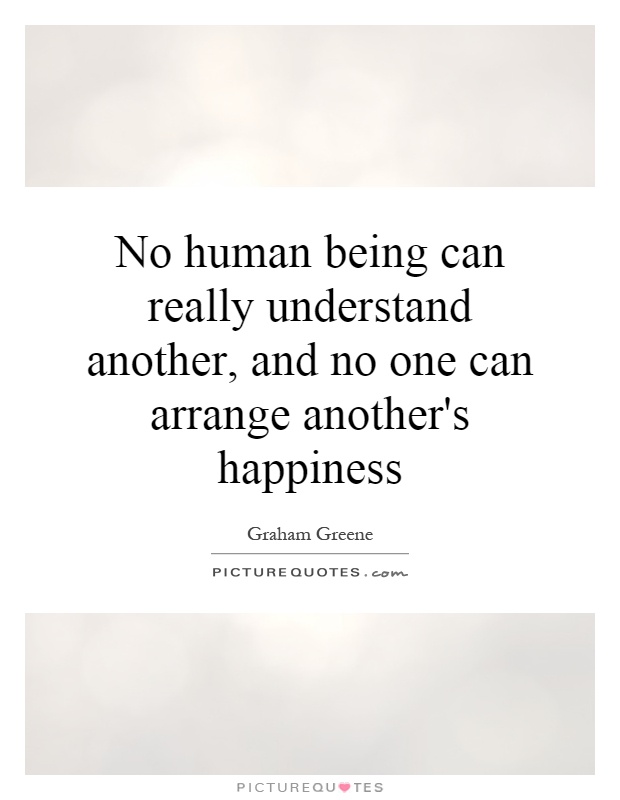No human being can really understand another, and no one can arrange another's happiness

No human being can really understand another, and no one can arrange another's happiness
Graham Greene, a renowned British author known for his complex characters and exploration of moral and political themes, often delved into the idea that no human being can truly understand another. This concept is evident in many of his works, where characters struggle to connect with one another on a deeper level, leading to misunderstandings and conflicts.In Greene's novel "The End of the Affair," the protagonist Maurice Bendrix grapples with the idea that he can never fully understand the motivations and emotions of his lover, Sarah Miles. Despite their intense relationship, Bendrix is unable to comprehend Sarah's decision to end their affair and turn to religion. This lack of understanding ultimately leads to bitterness and resentment on Bendrix's part, highlighting the inherent limitations of human empathy and perception.
Similarly, in "The Quiet American," Greene explores the complexities of human relationships and the impossibility of arranging another's happiness. The character of Alden Pyle, an idealistic American aid worker, believes he can bring happiness and stability to the people of Vietnam through his actions. However, his misguided attempts to impose his own values and beliefs on others ultimately lead to tragedy and destruction. Greene suggests that true happiness cannot be forced or orchestrated by external forces, but must come from within each individual.
Greene's exploration of the limitations of human understanding and the futility of trying to control another's happiness reflects his own philosophical views on the nature of human relationships. He believed that each person is ultimately alone in their thoughts and emotions, unable to fully bridge the gap between themselves and others. This sense of isolation and disconnect is a recurring theme in Greene's works, underscoring the complexity and fragility of human interactions.












 Friendship Quotes
Friendship Quotes Love Quotes
Love Quotes Life Quotes
Life Quotes Funny Quotes
Funny Quotes Motivational Quotes
Motivational Quotes Inspirational Quotes
Inspirational Quotes